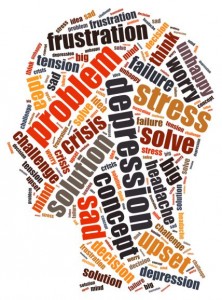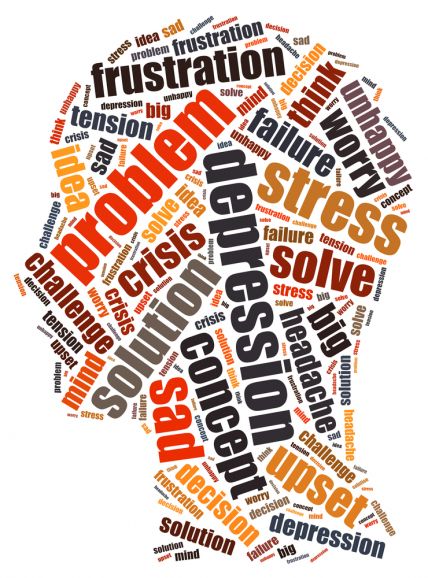My blog post on 10 reasons why a PhD can be challenging for your mental health has just been published over at The PhD Life blog, click here to read. I’ve also copied the post below.

Completing a PhD is by no means an easy task. In her new post, Salma reflects on the challenges it often poses to mental health.
I am very fortunate that my PhD experience so far has been on the whole enjoyable and intriguing. I can honestly say that I am at a stage where I love my PhD (although I can’t wait till it is finished!). However, a PhD can be mentally and physically challenging, and recent reports have shown that many in academia are suffering from mental health problems, with a study that found that 49% of PhD students suffered from a mental health problem. The following are 10 reasons a PhD can be challenging to your mental health:
1. A PhD is a lonely experience. Even those that are enjoying their PhD will admit that a PhD is a lonely experience. You are working on a project completely alone. There’s no one to share small findings with, or argue or discuss which method or procedure to use.
2. You will probably be lost for a good while, with no idea where you are heading. You may spend a good few months with absolutely no idea of what exactly your PhD will be about
3. You will end up doing work and writing pages that will not contribute to your PhD
4. You will not know for certain how well or not you are doing until you either publish or more likely when your PhD viva takes places, three or four years from when you start your PhD.
5. Your supervisors are only there to steer you. They are not your co-workers or your managers. They will not ask you if you got out of bed and read the papers you were supposed to read. They will be busy with their own teaching and a project, which will mean you have to have excellent management and motivational skills to focus and pull yourself and your work together, every day, throughout the year.
6. Your work will be criticised and it’ll be difficult not to take it personally. You may have been the top of your class in school, college and university but here your work will be scrutinised and criticised, not just by your supervisors but also by external peer reviewers and PhD viva examiners.
7. The supervisory experience and relationship can be challenging for some. There can be many reasons for that, including miscommunication, workload pressures, differences in personality etc.
8. Some things will be out of your control and they’ll be little you can do about it. For example, if and when you are recruiting participants, it may be difficult to find the participant/s you are looking for, or they may not be available for another few weeks.
9. The PhD plan continuously evolves; you have to be flexible and open to the idea of change. For example, a change in the study design or research aims or deleting 10,000 words you have spent months writing.
10. And finally a PhD is a test of perseverance.
These challenges are not faced by all PhD students; however, they do occur commonly. However, my intention is not to put you off doing a PhD; rather these challenges need to be taken into consideration (especially if you already have existing mental health problems) so that if you do decide to go ahead and join a doctoral programme, you have effective strategies and coping mechanisms in place to help you deal with these challenges (if you were to face them). Those already doing a PhD and facing some of these challenges may take some consolation from the list, that they are not alone in facing these challenges.
The question is, how do you cope with these challenges? A strong supportive network around you (whether that is family, friends, other PhD students offline or online) can make the loneliness easier to bear. I would recommend you have an active social life outside of your PhD, and exercise can be very beneficial to both your physical and mental well-being too. If you are struggling with anxiety and low moods, do not suffer in silence, please see your GP or the university counsellor who can refer you for counselling in the first instance (counselling is free on the NHS). Take regular breaks and week-long holidays from the PhD. My final piece of advice which I believe will make these challenges much easier to cope with: Don’t take your PhD too seriously. By that I mean is do not make the PhD the focal point of your life, rather have something else in your life that is more important than your PhD. That way if you feel your PhD is going off-track, you won’t stress yourself out, because your life will still be on track!

Comments